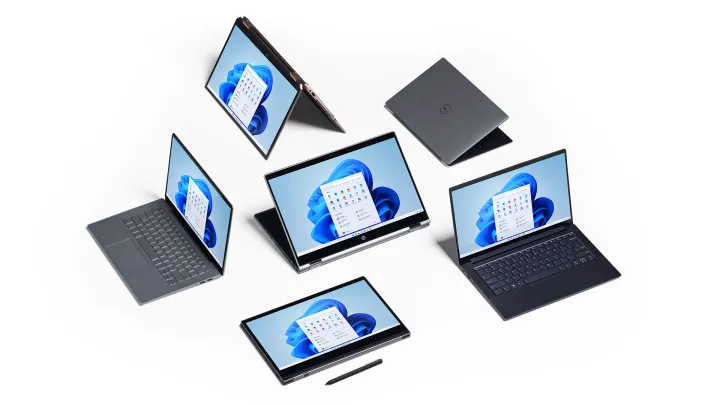The promise of the Surface Pro was the 2-in-1 experience — the ability to move seamlessly between tablet usage and desktop. Touch and keyboard were supposed to be interchangeable.
But because of the lack of software optimization and mobile apps, the tablet side of things was disappointing. Years and years went by, but Microsoft never addressed the troubled state of its Windows 10 tablet mode.
Now, Microsoft has announced Windows 11, and there’s finally light at the end of the tunnel for Surface fans like me. Though Surface and Windows Chief Panos Panay didn’t announce any new hardware, there are plenty of features in Windows 11 that will make existing (and future) Surface tablets exciting.
For the first time at Microsoft, Panos has married together the Windows software with hardware, and the Surface Pro now has what it takes to be an amazing product.
Android apps on the Surface

There’s no doubt that one area where Windows always struggled was with apps. It’s part of the reason that the Windows Phone ended up failing, and it’s why you don’t see a lot of big apps like TikTok or Snapchat in the Microsoft Store. That’s also why folks don’t usually detach their keyboard from a Surface Pro and use a Surface as a traditional tablet. You have little reason to use your device as a tablet if there aren’t many high-quality apps available to leverage inking, touch, or pen.
Well, Windows 11 is attempting to fix that problem using Android apps. Microsoft is opening up access for people to use a bigger selection of their favorite mobile apps on Windows via the Amazon App Store. These apps are already designed with touchscreens in mind, making them a natural fit for Windows 2-in-1s like the Surface Pro. The Amazon App Store might not be the ultimate solution — Microsoft’s intention is to open up the entire library of Android apps to Windows 11 in the future.
That doesn’t necessarily mean these apps will be perfectly optimized for larger screens like the Surface Pro. Android tablets have suffered from this problem for years now. But it’s a good start, and makes the Surface Pro a much more capable tablet.
Finally touch-friendly

The Windows 10 tablet mode always lagged behind what Apple has done with the iPadOS or what Google has done with Chrome OS. It’s clunky, confusing to use, and not optimized for touch, making Surface devices really weird to hold in the hands without a keyboard.
Windows 11 changes that by eliminating tablet mode entirely and putting in place some new controls that actually leverage the technologies and the touchscreens on Surface devices. You’ll be able to use your fingers in a more natural way to navigate your Surface. Just swipe to see open virtual desktops, minimize apps, or perform other functions. It will now be more optimized for your fingers, rather than the mouse. Oh, and there are even more ways to multitask with your fingers, too.
Microsoft even thought about the Surface pen. There are new haptics and sound feedback on the way in Windows 11, allowing you to use your pen in ways you never have before. That puts Surface and Surface hardware in the spotlight, making that $100 pen worth the purchase.
The look and the feel

A Surface 2-in-1 looks good on the outside with its kickstand and silver magnesium finish, but it’s also what’s inside that matters. If you look at iPadOS, the way the home screen, apps, and multitasking work flows well with the hardware itself. That same experience of both software and hardware now comes to Surface, and it’s very exciting.
Instead of having harsh pointed corners, Windows 11 sports rounded corners, which visually and physically is easy on the eyes and hands. Common areas of the OS where you touch the most, like the Action Center, Start Menu, and Taskbar, are now catered for the way you move your hands. Your apps are upfront, as are important documents, and the buttons you need for brightness, volume, and more look and feel great. Even the keyboard works better now, allowing you to touch the spacebar and use it as a touchpad, or even use your voice to control Windows 11.
Microsoft just showed the world what happens when Windows meets Surface, and it’s quite exciting. Even without knowing what the future holds for Surface hardware, Windows 11 is already starting to feel like the natural home for it.


